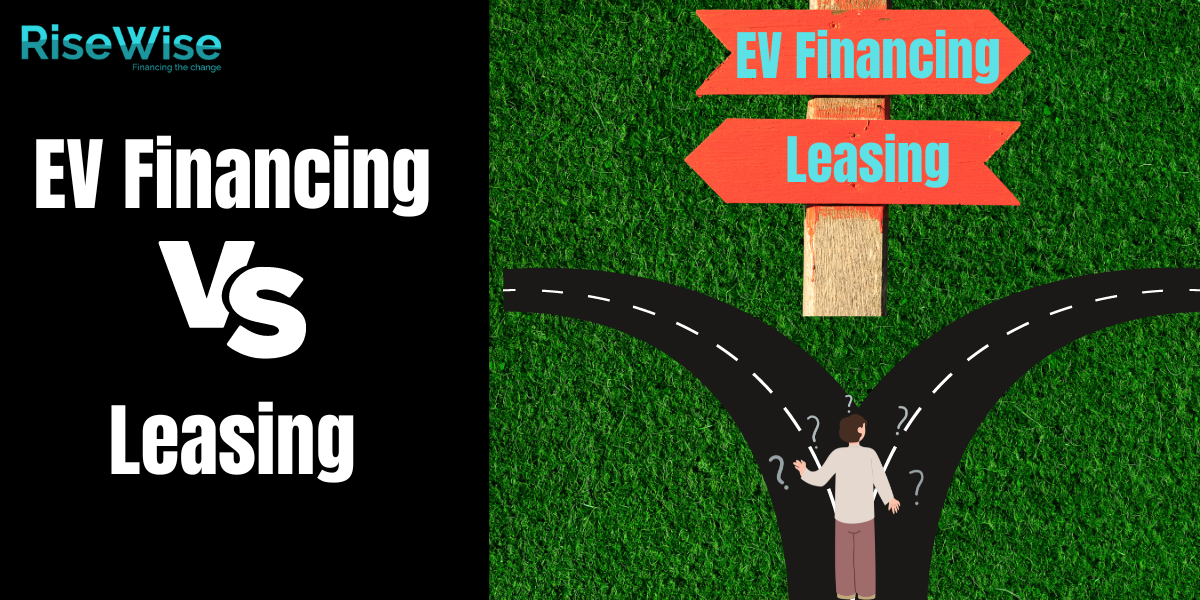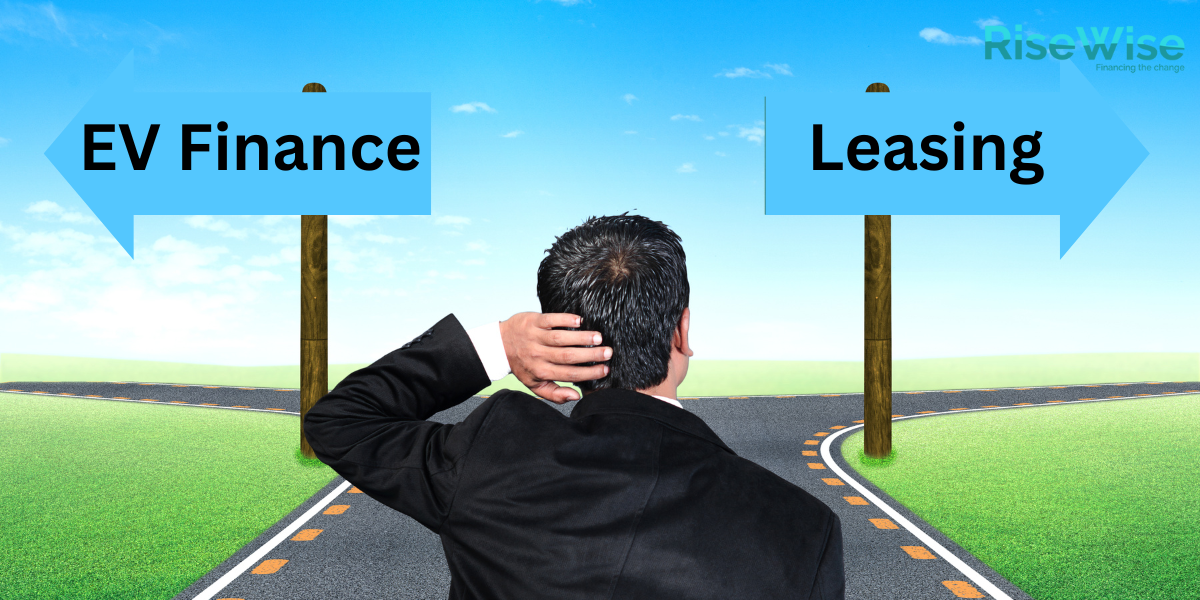EV Financing vs. Leasing: What's the Best Option for You?

As electric vehicles (EVs) become increasingly popular, many consumers find themselves counting the pros and cons of financing versus leasing when it comes to acquiring their next eco-friendly ride. Both options have their merits, but which one is right for you? In this comprehensive guide, we'll explore the key differences between EV financing and leasing, helping you make an informed decision that aligns with your financial goals and driving needs.
Understanding the Differences Between EV Financing and Leasing
Financing: When you finance an EV, you're essentially buying the car over time. You take out a loan to cover the purchase price and make monthly payments until the loan is paid off. Once you've completed the payments, you own the vehicle outright.
Leasing: Leasing an EV is more like a long-term rental. You make monthly payments for the right to use the vehicle for a set period, typically 2-3 years. At the end of the lease term, you return the car to the dealership unless you choose to buy it outright.
Key Benefits of Financing Your Electric Vehicle
- Ownership: The most significant advantage of financing is that you'll eventually own the EV outright. This means you can keep it for as long as you want or sell it when you're ready for an upgrade.
- No mileage restrictions: Unlike leases, which often come with annual mileage limits, financing allows you to drive as much as you want without incurring extra fees.
- Customization freedom: Since you own the vehicle, you're free to make any modifications or upgrades you desire without worrying about lease agreement restrictions.
- Potential for equity: As you pay down your loan, you build equity in the vehicle. This can be particularly beneficial if you plan to trade in or sell the EV in the future.
- Long-term cost savings: While monthly payments may be higher than leasing, financing can be more cost-effective in the long run, especially if you plan to keep the vehicle for many years.
Key Benefits of Leasing for Electric Vehicles
- Lower monthly payments: Leasing typically offers lower monthly payments compared to financing, as you're only paying for the vehicle's depreciation during the lease term.
- Driving the latest technology: With shorter lease terms, you can more easily upgrade to newer EV models with the latest features and improved battery technology every few years.
- Reduced maintenance concerns: Most leases coincide with the vehicle's warranty period, meaning you're less likely to face significant repair costs during your lease term.
- Simpler tax deductions for business use: If you use your EV for business purposes, leasing can sometimes offer more straightforward tax deductions compared to financing.
- Flexibility: At the end of your lease term, you have the option to buy the vehicle, lease a new one, or walk away entirely, providing more flexibility than financing.

Long-Term Costs: Financing vs. Leasing an EV
Financing: Higher upfront costs and monthly payments, building equity in the vehicle, lower insurance premiums over time, and responsibility for maintenance costs after the warranty period.
Leasing: Lower upfront costs and monthly payments, no equity build-up (unless you choose to purchase at lease-end), potentially higher insurance premiums, and limited responsibility for maintenance costs.
The long-term cost-effectiveness of each option largely depends on how long you plan to keep the vehicle and your driving habits.
Which is More Affordable: EV Financing or Leasing?
Financing may be more affordable if:
- You plan to keep the vehicle for more than 5 years.
- You drive more than the typical lease mileage allowance.
- You're comfortable with higher monthly payments in exchange for building equity.
Leasing may be more affordable if:
- You prefer lower monthly payments.
- You can enjoy the new vehicle every few years.
- Your annual mileage aligns with lease restrictions.
- You're not concerned about building equity in the vehicle.
How to Decide Between Financing and Leasing Your EV
- Budget: Evaluate your monthly budget and determine which option aligns better with your financial goals.
- Driving habits: Consider your annual mileage and how it compares to typical lease restrictions.
- Technology preferences: If having the latest EV technology is important to you, leasing might be more appealing.
- Long-term plans: Think about how long you want to keep the vehicle and whether ownership is a priority.
- Maintenance comfort: Assess your willingness to handle potential repair costs outside of warranty periods.
- Customization desires: If you like to personalize your vehicle, financing offers more freedom in this regard.
- Tax implications: Consult with a tax professional to understand the potential tax benefits of each option, especially if you use the EV for business purposes.
Financing vs. Leasing: Which Offers Better Incentives for EV Buyers?
Financing incentives: Federal tax credits (if applicable), state and local rebates, low-interest financing options from manufacturers, and cash-back offers.
Leasing incentives: Lower capitalized cost (vehicle price) due to applied tax credits, manufacturer lease specials with reduced money down or monthly payments, included maintenance packages, and waived security deposits.
Contact Rise Wise Capital for Your EV Financing Needs
When you want to buy a new vehicle, connect with Rise Wise Capital. They will help you take your dream car with a low interest rate and lots of benefits.
Frequently Asked Questions
1. Is it cheaper to lease or finance an electric vehicle?
The answer depends on your personal driving habits and long-term goals. Leasing generally offers lower monthly payments and allows you to drive a new vehicle every few years. However, financing may be more affordable in the long run if you plan to keep the vehicle for more than five years, as you'll eventually own it outright and won't have to worry about lease restrictions or mileage limits.
2. What are the benefits of financing an electric vehicle compared to leasing?
When you finance an electric vehicle, you build equity over time and eventually own the car. This gives you the freedom to customize and drive as much as you want without mileage restrictions. Leasing, on the other hand, offers flexibility and lower monthly payments, but you won’t own the vehicle unless you choose to buy it at the end of the lease term.

